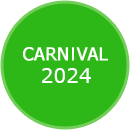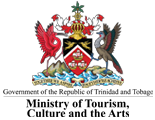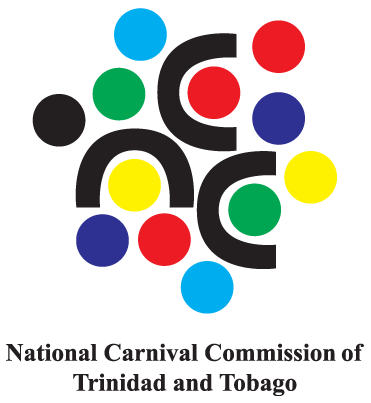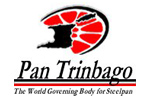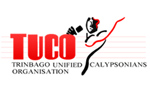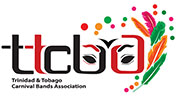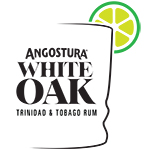Measuring the economic and social value of Carnival
 One of the goals of NCC's new five-year Strategic Plan 2014-2018 is to replace the focus on Carnivalas a festival with Carnival as an industry.
One of the goals of NCC's new five-year Strategic Plan 2014-2018 is to replace the focus on Carnivalas a festival with Carnival as an industry.
The National Carnival Commission of Trinidad and Tobago Act(Chapter 42.01, Act 9, 1991, Parliament) provides in part that the functions ofthe Commission are as follows:
- (a) to make Carnival a viable national, cultural andcommercial enterprise;
- (b) to provide the necessary managerial andorganisational infrastructure for the efficient and effective presentation andmarketing of the cultural products of Carnival; and
- (c) to establish arrangements for ongoing research,the preservation and permanent display of the annual accumulation of Carnivalproducts created each year by the craftsmen, musicians, composers and designersof Carnival.
The Trinidad and Tobago Carnival Industry has given rise toindustrial production of a range of cultural products and services, includingcultural events.
Some producers in the Carnival-related Industries produceCarnival related products and services exclusively.
Others produce general use products and services that havewide general usage across all Industrial groups and are not exclusive to theCarnival related Industries.
All studies to date have indicated that the industry offersrich potential for national development. Most important among these is the 2011WIPO study of the Contribution of the Copyright Sector to the Economy ofTrinidad and Tobago.
The copyright-based industries produce about 4.8% of the GDPand about 5% of all jobs. These shares are growing.
Carnival is an important contributor to this process.Moreover, it already produces a wider range of intellectual property andrelated goodwill other than copyright. The T&T Carnival is a global player.
The GOTT now intends to measure the full potential ofCarnival in a way that allows the country to make the most effective policy forits development. The GOTT wants to promote the most effective use of itspotential to stimulate national development. It will promote, among others:
- Economic benefits - general goodwill; wealthcreation; intellectual property rights; bigger and more profitable industries;employment; foreign exchange earnings; private sector development.
- Social benefits - self-esteem; socialintegration; leadership skill development; physical health and healthy habits;education and learning; volunteerism and community spirit; dedication; spreadof the carnival work ethic.
- Governance benefits - piloting significant stepsto the enhancement of the democratic process in T&T through enhanced andeffective public participation is shaping industry policy.
In making policy for the carnival industry, the GOTT intendsto promote the science-policy interface to which it agreed as part of theRio+20 agenda for sustainable development and good governance.
Accordingly, the GOTT will arrange to involve allstakeholders in the most democratic way possible. So, it will employ asector-wide method that:
- Collects and uses comprehensive data from alldomains to measure industry potential and monitor the support needed by theestablishments and businesses in the industry.
- Promotes the development of the private sector.
- Enables every stakeholder to have a cleardemocratic voice in shaping the national policy consensus.
- Proceeds in a way that allows the GOTT to beable to assess all stakeholder intents and signal its own intent effectively,through proper laws, so that all can jointly plan and implement the mosteffective strategy possible.
Background work is currently being done by the consultantsof the NCC to assemble some of the starting data readily available from the CSOand the stakeholder community. This will involve getting information on stakeholdergoals and concerns.
Immediately after Carnival, the stakeholder participatoryprocess of policy design will begin, adopting the most effective arrangementspossible.
Stakeholders include the GOTT and the Media. Ultimately, asthe program evolves, it is expected that:
- The NCC will be providing technical assistanceto all of its member institutions to assist their own members in developing andpresenting their positions and their capacity to shape law and policy for theindustry.
- The GOTT will provide a suitable forum in theform of specific parliamentary sub-committee initiatives, such as hearings, toenable the widest possible public involvement in determining the best policygoing forward.
Out of the participatory process will come an agreementamong stakeholders about the way forward – a broad-based set of developmentprograms.
This will feature at least:
- Continuous awareness building in the nation.
- Continuous (annual) industry monitoring by theCSO and other entities - upgrading what is now done for all other industries.
- Democratized investment planning and policybased on the data collected, including
i. Investment promotion, marketing and rebrandingfor industry development.
ii. Infrastructure for sector development.
iii. Education and related training for sectordevelopment.
iv. Research and technical support for enterprises.
v. Risk management and related financing strategiesfor enterprises.
vi. Reform of incentives to promote private sectordevelopment in the sector.
vii. Comprehensiveinformation sharing and communication with all stakeholders.






